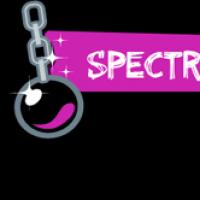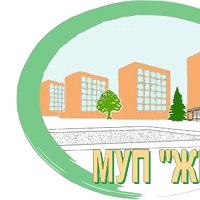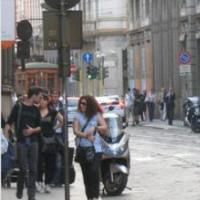Distance learning restaurant business. Features of teaching restaurant business
Tourism and Hospitality Course Program
Hotel business organization
- Introduction to the hospitality industry.
- 1.1. Fundamentals of marketing in the hospitality industry. Definition of the hospitality industry. The main purpose of marketing in the hospitality industry. The concept of "service" and its main specific feature.
- 1.2. Rules for the provision of hotel services in Russian Federation. The concept of "hotel". Hotel classification. Number fund. European standard.
- 1.3. Management structure of a modern hotel. Services, departments, division of the hotel. The relationship between them.
- 1.4. The emergence and development of the hotel industry. Hotel and tourism business, its place and role in the economy. Its influence on the development of industries. The most unusual hotels in the world.
- Booking and accommodation service.
- 2.1. The role and place of the booking and accommodation service in general management structure modern hotel. Service organization. Job Descriptions personnel of this service.
- 2.2. Technical means ensuring the work of the service (fax, telex, computer, copier, etc.) Office equipment.
- 2.3. Four cycles in serving guests.
- 2.4. Reservation (booking). Reservation types. Ways and technology of reservation. Confirmed Reservation. Reservation fee.
- 2.5. Reception and accommodation of guests (check-in).
- 2.6. Registration and its procedure. Registration of documents. Features of registration and registration of foreign citizens, citizens of Russia and citizens of the CIS.
- 2.7. Room rates. Published and corporate prices. Discount systems. Methods of payment (cash, bank transfer, payment by vouchers). Payment documents. Work with credit cards.
- 2.8. Key economy. The procedure for issuing keys. Ensuring the safety of guests' property. Organization of storage of valuables.
- 2.9. Guest service during the stay (mini-bars, laundry). Provision of additional and personal services for catering, transport and excursion services.
- 2.10. Familiarization with the work of the business center, service bureau, health center, hairdresser, room - service, restaurants, bars in the hotel.
- 2.11. Settlement of guests (preparation and execution of the settlement operation).
- 2.12. Payment for accommodation, additional services, telephone conversations.
- 2.13. Charging fees for damage and loss of hotel property by customers. Methods to eliminate the shortfall in income by the hotel. Documentation (invoices, registration books, forms, etc.).
- 2.14. Operators work telephone connection. Communication norms.
- 2.15. Ensuring the safety of guests. Doorman service and security service. Night audit at the hotel. Non-standard situations control over them. Behavioral models of people in stressful situations. Organization medical care guests.
- Administrative - economic (floor) service of a modern hotel.
- 3.1. Service composition. Service personnel job descriptions. Sanitary and hygienic requirements for the maintenance of rooms and public premises.
- 3.2. The latest trends in floor-to-floor guest service technology.
- 3.3. Various types of cleaning: current, intermediate, evening, general. Cleaning sequence. Cleaning technology.
- 3.4. Key economy. Abandoned and lost things. Storage. Return procedure.
- 3.5. Hospitality items of one-time consumption in branded design, promotional materials, their placement, quality control of cleaning and technical condition of the rooms.
- 3.6. Work with linen (storage of clean linen, collection and accounting of used linen, sending it to the laundry, work with personal linen of residents).
- 3.7. Serving high-ranking guests (VIP-guests).
- 3.8. Maid's working trolley, equipment, equipment, cleaning mechanisms, inventory, detergents, their characteristics. Consumption rates of household materials, requirements for their rational use.
- 3.9. Complaints from guests (questionnaire survey cards on the quality of service).
- 3.10. Occupational health, safety, rules against fire safety in the fire department.
- Internal regulations for hotel workers.
- 4.1. Requirements for hotel workers. Recruitment for the hotel business. Legal basis. Rights and obligations of hotel employees.
- 4.2. Recommendations regarding the writing of resumes, questionnaires. Practical Tips, analysis of the questions most frequently asked at interviews in the personnel department of hotels.
- Test (interview).
Tourism business organization
- Legal aspects of tourism business
- 1.1. Normative base to ensure the quality of service in the tourism business. Law on Consumer Protection". the federal law"On the basics of tourism activities in the Russian Federation". Other regulations, rules, recommendations.
- 1.2. Basic terminology of the tourist services market.
- 1.3. Organs government controlled tourism.
- Participants in the tourism process
- 2.1. Contractual relations with foreign partners (travel agency, hotel, restaurant, tour agency, etc.). procedural questions. Reception of objects.
- 2.2. Tour operator company. agency network.
- 2.3. Travel agency as a travel agency - an intermediary. An agreement between them (travel agency agreement). Rights, duties and responsibilities.
- 2.4. The client is the central figure in the tourism process, the consumer of the tourism product.
- Types of travel in international, inbound and domestic tourism
- 3.1. Tourism is a branch of the national economy.
- 3.2. Cognitive types of tourism. Education.
- 3.3. Travel as an active holiday and recreation.
- Development and selection of tourist programs
- 4.1. Tours abroad, Excursion routes, Leisure tours, Combined trips, Bus tours, Cruises (sea, river), Winter tours, Tours for schoolchildren, Business tours: Shopping tours, Educational tours, Individual trips (special programs), Inbound tourism, Features of reception and service of foreign tourists in the Russian Federation (Main routes, Business tourism), Domestic tourism.
- Tourist Service Agreement
- 5.1. A package of documents. Tourist ticket.
- 5.2. The content of the contract with the client. Voucher.
- 5.3. Mandatory and additional services.
- 5.4. Penalties.
- Relationship with the client
- 6.1. Professionalism, moral and psychological aspects communication.
- 6.2. Awareness, the right to choose.
- 6.3. Consideration of claims, comments and complaints. Protection of the rights of the tourist and the interests of the company.
- 6.4. Medical insurance. Other types of insurance.
- Service quality and service safety
- 7.1. Safety of life, health, environment; safety of property.
- 7.2. Security of the process of performing tourist services (planned and additional).
- 7.3. Service quality system. Sociological research.
- 7.4. Forms and methods of control.
- 7.5. Control bodies.
- Compliance with the laws of the host country, rules and customs
- 8.1. Legal and moral and ethical aspects. General provisions. Specificity of a particular country. Tourist responsibility.
- Hotel service
- 9.1. Classification of enterprises providing accommodation services.
- 9.2. Technological scheme for servicing tourists in a hotel.
- 9.3. Rules for the provision of hotel services (ordered and additional).
- 9.4. mode and security.
- 9.5. Responsibility of the parties under the contract (complaints, claims).
- Catering
- 10.1. Technology and catering for tourists. Types of food.
- 10.2. Requirements for food quality and safety.
- 10.3. Responsibility of the parties under the contract (complaints, claims).
- Transport service for tourists
- 11.1. Classification of transport trips and Vehicle(air, railway, buses).
- 11.2. Ticket booking procedure. Charter flights.
- 11.3. Transfers. Meetings - seeing off tourists.
- 11.4. Travel safety.
- Excursion service
- 12.1. Types of excursions.
- 12.2. Technology of preparation and organization of excursions (scheduled and optional).
- 12.3. Safety rules for excursions.
- 12.4. The quality of excursions (accounting for clientele, content, intelligibility, etc.).
- 12.5. The role of the tour guide, group leader. Consideration of claims.
- Passport and visa issues
- 13.1. General passport (OPP).
- 13.2. The order of registration, important "details".
- 13.3. Responsibility for the power of attorney of the firm's and the client's ORP.
- 13.4. The procedure for issuing and obtaining exit visas. Schengen visa. Visa-free or simplified entry into the country.
- 13.5. customs control upon entry and exit.
- 13.6. Customs formalities (peculiarities of countries).
- 13.7. Favorable regimes.
- 13.8. Carriage of luggage, delivery of goods by "cargo".
- 13.9. customs restrictions. Sanitary and epidemiological control.
- Competitiveness of a travel company
- 14.1. Preparation of a tourist product for sale.
- 14.2. Pricing, calculation of tourist services. Profitability and profit.
- 14.3. Tourist advertising. Types of advertising, rules for conducting advertising campaign. Advertising requirements.
- 14.4. Questions of taxation.
- The procedure for the formation of a travel company
- 15.1. Development of constituent documents. Company registration. Company charter.
- 15.2. Licensing of types of activity.
- 15.3. Tourist product certification.
- 15.4. Liquidation of travel companies.
- Staffing of tourist and excursion services
- 16.1. Civil law relations. Code of Labor Laws of the Russian Federation.
- 16.2. Rights and obligations of employees. Inner order rules. State structure. Job instructions. Qualifications. Working conditions and wages. Operating mode.
- 16.3. Organization technological process travel agency work. Office work.
- 16.4. Reporting to higher authorities (tax office, other public services).
- Features of tourism business management.
- Prospects for the development of tourism
- 18.1. International and domestic tourism in the conditions of market relations. Trends.
- Review of computer programs used in the practice of travel companies.
- 19.1. Acquaintance with the program "Mastertravel agent".
- 19.2. Practical lesson. Booking tours: the procedure for on-line booking on the example of a separate site.
- 19.3. Practical lesson: tour designer.
- 19.4. Tourist search engines.
- Test (interview).
| Ac.h. | base price | Discount | Final cost | Pay |
| 88 ac.hours 76 ac. hour.- Auditory lessons 12 ac. hour.- self-study |
32230 rub. | 19340 rub. |
Send a request for training right now and get completely free access to the first lesson, where we will tell you about 11 secrets from successful hoteliers to increase sales of hotel services!
Leading experts in the hotel business are sure that in the coming years the profession of a hotelier, already popular abroad, will become one of the most popular in Russia. This is not surprising, because the position of a hotelier is a consistently high salary and a prestigious profession!
Therefore, the requirements for a hotelier are especially high... For successful work, it is not enough to have clear knowledge of theory and practical skills, you also need to be able to perfectly manage personnel, understand the law, analyze offers and market needs.
You will be able to fully master the key skills and knowledge for success in the hotel business as soon as you complete the course “Hotelier” at the Institute of Hotel Business at the MBA CITY Business Academy!
In the full course “Hotelier”, developed by the best specialists of the hotel business specifically for your training, every useful detail is taken into account: starting with job descriptions for hotel staff and ending with the ability to understand the taxation system. These fundamental, as well as many other disciplines and knowledge important for success, will become indispensable both for the success of your business and for improving your personal professional competence.
Students of the “Hotelier” course at the School of Hoteliers of the MBA CITY Business Academy will effectively and quickly receive a quality education in the hotel business, get acquainted with the specifics of hotel services, get acquainted with the classification and categories of hotels, services for receiving and accommodating guests. You will learn the skills that are fundamental to the successful work of a hotelier, get acquainted with key service standards and learn the principles of assessing the work of hotel staff.
The general course of hotel business “Hotelier” at the Moscow Institute of Hotel Business MBA “CITY” is your real chance to study hotel business, get a diploma in hotel business and get closer to the world of successful hoteliers!
In order for you to get knowledge of the profession of "Hotelier" in the most comfortable way, the Institute of Hotel Business offers you to choose a personal form of training:
● Distance learning . distance course at the Institute of Hotel Business from the Business Academy MBA CITY - the most convenient form for those who want to become a successful hotelier in the shortest possible time. The course program contains a complete and up-to-date information sufficient for the successful management of the hotel business. . Future hoteliers in the course of distance learning in the hotel business get acquainted with valuable text lessons, supported by tables, graphs, diagrams, audio and video, dedicated to the key professional knowledge and skills for a successful hotelier. Thanks to a clear and detailed multimedia presentation of the material, you can effectively learn the knowledge yourself. Remote general training course “Hotelier” from the MBA CITY Business Academy is your opportunity to master the training program with high quality and become a professional in the hotel business in the shortest possible time!
● Face-to-face distance learning in a group. Combine business with pleasure by choosing this species obtaining knowledge. In the effective program of the course "Hotelier" at the Institute of Hotel Business at the Business Academy MBA CITY, you will attend full-time courses in the hotel business. Classes are held in our training center in specially equipped and comfortable classrooms. You will have an effective familiarization with the material during the practical exercises, trainings and role playing dedicated to mastering the profession of a hotelier. The course is conducted by an experienced teacher-practitioner who will share with you the professional secrets of the hotel business. Classes are held in groups of up to 10 people. For a more detailed study and repetition of the material to listeners through Personal Area access to the distance learning program for the general course of the hotel business “Hotelier” from the MBA CITY Business Academy is also opened.
● Individual/corporate full-time distance learning. Do you value a personal touch? Especially for you, the most useful personal training program will be developed, which will include the disciplines that you need. A personal schedule and a training course for the “Hotelier” profession, drawn up on an individual request, will allow you to make the most efficient use of your time, while also saving your money. Study the necessary disciplines remotely, at a convenient pace and rhythm. The corporate uniform will be the most useful for employees, motivating the whole team for professional and personal growth at once!
Whatever option you prefer, you can be sure: the specialists of the Institute of Hotel Business from the Business Academy MBA CITY will help you quickly and with pleasure to master all the basics of the fascinating and exciting world of the hotel business.
Due to the wide development of the hotel business, competition in this segment is especially high. In order to gain the right qualifications and become part of the rapidly developing, relevant and profitable field of the hotel business, it is imperative to complete the appropriate training.
That is why with the help of the general hotel business course “Hotelier” from the MBA CITY Business Academy, you can become a particularly valuable specialist. Learn the art of presenting your offer in a favorable light for the consumer, learn all the secrets of doing business in the hospitality industry and become irreplaceable!
At the end of the course, students receive state diploma with an international supplement on professional development in the hotel business and the passage of the course "Hotelier".
License for educational activities №038379
The program of the training course "Hotelier"
1. History, role and global brands of the hotel industry1.1 The history of the emergence of hotel services
1.2 Hotel and tourism business, its place and role in the economy
1.3 Major global hotel chains and brands
1.4 Ritz-Carlton, Hilton, Kempinski brands
1.5 Holiday Inn, Marriott, Hyatt, Best Western brands
2. Current state and development of the hospitality industry
2.1 Definition and structure of the hospitality industry
2.2 External and internal factors in the development of the hospitality industry
2.3 Seasonality factor in the tourism business
2.4 Main modern tendencies in the hospitality industry
2.5 Four world models of hospitality
2.6 Hospitality organization models
2.7 Classification and specifics of hotel services
2.8 Features and structure of the hotel product
3. Classification and structure hotel companies
3.1 Categorization of hotels and classification by category
3.2 Classification of hotels in different countries of the world
3.3 Classification of hotels by comfort level
3.4 Typology of hotels
3.5 Functional purpose of hotels
3.6 Functional requirements for hotels
3.7 Life support of hotels
4. Hotel industry of the Russian Federation
4.1 Features of the Russian classification of hotels
4.2 Hotel industry in Russia
4.3 Famous hotel chains present in Russia
4.4 Hotel industry in Moscow
4.5 Hotel industry in St. Petersburg
5. Characteristics of the services of the hotel enterprise
5.1 general characteristics hotel services
5.2 Booking service practices and booking risks
5.3 Features of negotiating with representatives of travel agencies
5.4 Reception and accommodation service: role, structure, requirements, norms, calculations
5.5 Maintenance and operation of the room fund
5.6 Security service: investigation of crimes and behavior in emergency situations
5.7 Hotel engineering service
5.8 Job descriptions of hotel staff
6. International Standards hotel services
6.1 Principles for evaluating a quality service
6.2 Service standards as a factor in successful competition
6.3 Telephone etiquette standard for hotel employees
6.4 Standard appearance hotel staff
6.5 Standard of Conduct for Hotel Staff
6.6 Check-in, check-out and booking as an important part of the hotel experience
7. Rules for successful work of staff with clients
7.1 Professional ethics hotel workers
7.2 Required personal qualities to work in a hotel
7.3 4 types of clients: how to find the right approach
7.4 Considerations for clients when choosing a hotel
7.5 Features of contact of hotel staff with customers
7.6 Difficult guests and principles competent work with them
7.7 Complaints to hotel business and how to fix them
7.8 "Tourist racketeering" and legal filing of complaints
8. Organization and operation of the restaurant service at the hotel
8.1 Infrastructure of the restaurant complex
8.2 Benefits and losses of outsourcing
8.3 Waiter procedures and standards
8.4 Organization of the work of the room-service
8.5 Organization of document flow and accounting of restaurant service dishes
8.6 Record keeping of minibar products
8.7 Classification of rewards (compliments) for hotel guests
9. Additional services hotels and how they are provided
9.1 Types and technologies for the implementation of animation programs
9.2 Animation of resort hotels
9.3 Ways of catering tourists in hotels
9.4 Provision of ticket booking services
9.5 Provision of transfer and pick-up services
9.6 Features of the organization of excursion services for guests
10. State and hotel business: obtaining a license and certification
10.1 Hospitality Licensing Process
10.2 Definition of standardization and hotel standards
10.3 Schemes and documents for hotel certification
10.4 International certification and classification of hotels
10.5 Indicators of the quality of hotel services
10.6 International directions for the creation of quality services
11. Success and competition in the hotel business
11.1 Definition and evaluation of the performance of the hospitality business
11.2 Types of competition in the hospitality industry
11.3 Methods of competition: how to beat the competition
11.4 Building competitiveness
12. Forms and methods of managing a hotel enterprise
12.1 Forms of hotel management: contract, franchising, rent, joint-stock companies, syndicates, consortia
12.2 Organizational structure hotel management
12.3 Development of an individual style and method of management
12.4 Planning methods and functions
12.5 Creating an enabling environment to motivate employees
12.6 Management control and making adjustments
12.7 Building management leadership
12.8 Hotel quality management
13. Making management decisions in the hotel
13.1 Content and types of management decisions
13.2 Decision-making process
13.3 Decision-making methods
13.4 Individual decision-making styles
13.5 Conditions for the effectiveness of management decisions
13.6 Organization and control over the execution of decisions
14. Finance and working capital of hotel enterprises
14.1 Economic indicators hotel work
14.2 Components of a hotel product
14.3 The work of the analytical service in the hotel
14.4 Fixed assets of the hotel enterprise
14.5 Nature and composition working capital hotels
14.6 Financial resources and profit of hotel enterprises
14.7 Estimating the cost of hotel services
14.8 Organization of accounting at hotel enterprises
15. Business planning and hotel budgeting
15.1 Development of a business plan and its implementation
15.2 Budgeting as a technology financial planning
15.3 Purpose and implementation of controlling
15.4 Process-Based Budgeting and Costing
15.5 Achieving excellence by eliminating waste
15.6 Production expansion planning
16. Marketing in the hotel business
16.1 GDS and ADS systems: meaning and benefits
16.2 Competitive monitoring and market analysis of hotel services
16.3 Effective hotel internet marketing
16.4 Formation of customer loyalty programs
16.5 Marketing cycle diagram
17. Hotel security system
17.1 Creation of a unified integrated security system in the hotel
17.2 Safety concept
17.3 Establishment of a fire safety system
17.4 Organization of fire alarm in the hotel
17.5 Maintaining good electrical systems in the hotel
18. Hotel selection and staffing
18.1 Recruitment: concept, types, methods
18.2 Conducting questionnaires and interviews
18.3 Selection rules for line and leadership positions
18.4 Methodology for diagnosing aggressiveness and self-control
18.5 Methodology for diagnosing self-esteem and personality orientation
18.6 Methodology for identifying leadership qualities and organizational skills
18.7 Methodology for determining leadership style
19. Training and evaluation of hotel personnel
19.1 Methods and techniques for training new employees
19.2 Professional adaptation personnel
19.3 Training and exercise programs for hotel staff
19.4 Methods for assessing and questioning employees
19.5 Qualification and its methods
20. Hotel personnel management and remuneration
20.1 Principles and methods of personnel management
20.2 Basic principles of people management
20.3 Enterprise security labor resources
20.4 Conclusion employment contracts
20.5 Placement and distribution of workers
20.6 Forms and systems of remuneration
20.7 The procedure for accruing funds for wages
20.8 Hospitality payroll
21. Tax system and hotel taxation
21.1 Types of taxes and fees
21.2 Taxes from net profit enterprises
21.3 Value added tax
21.4 Taxes on cost of production
21.5 Taxes on financial results enterprise activities
21.6 Features of taxation of hotel enterprises
The most common entrance exams are:
- Russian language
- Mathematics (basic level)
- Social studies - a profile subject, at the choice of the university
- History - at the choice of the university
- Informatics and information and communication technologies (ICT) - at the choice of the university
- Foreign language - at the choice of the university
Popularization and mass expansion of tourism in the world, cooperation with foreign partners and other factors require the availability of qualified specialists who would be well versed in the hotel business and management. tourism business generally. That is why this specialty attracts many applicants who (subject to good learning) are guaranteed to be successfully employed.
The most common entrance exams
To enter the specialty "Hospitality" applicants are invited to pass exams or count USE results on three subjects. The profile exam is social science, since training involves the study of a large number of social disciplines.
Other required exams are Russian and History. Some universities are replacing history with computer science and ICT. At the discretion of the school, a foreign language exam may be offered.
Brief description of the specialty
A specialist in this area can be engaged in organizational and managerial or production and technical professional activity. Students study a number of disciplines that allow them to form professional competencies. However important role in the training of specialists is given to the formation of the culture of the future employee of the hotel. Therefore, among the disciplines you can find conflictology and psychology. business communication. In the process of learning, students participate in various trainings, undergo several practices, including abroad (depending on the particular university), study two foreign languages.
Major universities
The most famous educational institutions that train specialists in the specialty 43.03.03 "Hospitality"
- Russian State University physical culture, sports, youth and tourism;
- Voskresensky Institute of Tourism (branch) of the Russian International Academy of Tourism;
- Moscow state institute tourism industry named after Yu.A. Senkevich;
- Academy of Labor and Social Relations;
- Russian State University of Tourism and Service.
Terms and forms of training
 Training involves the following forms: full-time, part-time and part-time. The duration of full-time study is 4 years, on other forms - from 4 years 4 months to 5 years. After receiving a bachelor's degree, you can continue your studies in this specialty in the master's program.
Training involves the following forms: full-time, part-time and part-time. The duration of full-time study is 4 years, on other forms - from 4 years 4 months to 5 years. After receiving a bachelor's degree, you can continue your studies in this specialty in the master's program.
Subjects studied by students
In the process of learning, students master six cycles of disciplines and separately physical culture.
These are the following cycles:
- humanitarian,
- social,
- economic,
- mathematical,
- natural science,
- professional.
Each of the above cycles includes the base and profile parts. The disciplines of the basic part of the cycles include philosophy, logic, history, psychology, life safety, economics, marketing, a foreign language, computer science and others.
Thanks to the profile part, the student receives a good vocational training and the possibility of successful further education. Such disciplines are determined by the university depending on the specific profile of education.
Profile disciplines can be the following:
- logistics, hotel industry technologies,
- hotel animation,
- public relations in the industry,
- basics of entrepreneurship,
- hotel personnel management,
- business planning and others.
A number of disciplines are offered to students to study to choose from, depending on what directly interests them in the hotel business. These can be the basics of service science, sales management, marketing in the hotel and tourism industry, and others.
Acquired knowledge and skills
A bachelor in the field of hotel business during the training acquires the following knowledge and skills:

Whom to work
Bachelor's graduates are employed in various organizations and companies in the hotel and tourism industry and hold the positions of director, department manager, specialist in sales, planning, development, marketing and advertising departments. Also, the specialty implies a successful entrepreneurial activity.
The next direction of employment is hotels, hotels, sanatoriums, recreation centers, health and resort complexes.
Here graduates can take the following positions:
- supervisor,
- administrator,
- manager,
- head of booking, accommodation, service maintenance,
- personnel manager, etc.
You can find a job both in the resort or large cities of our country, and abroad. The choice of country may depend on the second foreign language studied. Wage starts from 30 thousand rubles from the heads of services and from 40 thousand rubles from hotel managers. For large hotels and popular tourist destinations, these numbers almost double.
There is the prospect of building a career vertically (from HR manager to manager) and horizontally (with a transition to larger and more popular hotels).
If you want to seriously engage in the restaurant business or make it your profession, you cannot do without a higher specialized education. Since the specialty of a profile manager in this area is in demand, many universities offer paid training hotel- restaurant business. And, despite the fact that the cost of such education ranges from $ 1,000 to $ 2,500 per year, there is a rather large competition for admission to many prestigious universities. There are, of course, budget places, but, unfortunately, they are very few.
When choosing a specialty, you should decide on a specialization: you can become an organizer or, this different directions in the service sector. Specialists with an economic profile are engaged in the development of a strategy and pricing policy thanks to which the catering enterprise will be able to withstand the fierce competition that exists in this area. Those who specialize in organizational areas will be engaged in the selection and training of personnel, perform administrative functions and, in general, be responsible for the successful operation of the restaurant.
Which Moscow universities train restaurant business specialists
Those who are more interested in the economic side of the restaurant business can enter the Russian Academy of Economics - the famous Plekhanovka (REA) or the Moscow International Higher Business School (MIRBIS). "Organizers" are trained at the Peoples' Friendship University of Russia (PFUR). Specialists of both profiles are trained at the Moscow Academy of Tourism and Hotel and Restaurant Business under the Government of Moscow (MATGRB) and the Institute of Tourism and Hospitality of the Moscow state university service.When entering the specialty "Organization of restaurant business" you will need knowledge of foreign and Russian languages, as well as history and geography, to enter the economic specialty you also need to know mathematics well. At the exams, you will need to pass a test in two subjects and an interview, where professional suitability will be determined.
Study abroad
You can also get an international certificate confirming professional specialization in the restaurant business abroad. Training is geared towards preparation effective managers in this field, at the end of some schools you can get a bachelor's degree, as well as a diploma that will open the doors of the most prestigious restaurants for you.Restaurant business will be successful if you choose the format of the institution (cafe, bistro, restaurant) correctly. Also, its success depends on the unmistakable choice of the most popular specialization (national cuisine, seafood, steaks). Another important aspect is the choice of region. To date most in demand used by Italian restaurants, followed by restaurants of Caucasian cuisine. Japanese and Chinese cuisines continue to be popular, but this is already a downtrend.
You will need
- concept of the future restaurant, business plan, marketing plan, premises, equipment, products, personnel.
Instruction
Choose a room that will match the format of the institution. The main selection criteria are the presence of client flows and suitable inside. It should also be possible to divide the area into three main parts: production, office and hall. Many novice restaurateurs at this stage make one irreparable mistake. In an effort to place in the hall the maximum number seats, they "rob" production areas, combine hot and cold shops, reduce the number of utility rooms. As a result, the controlling authorities do not issue permission to open an institution, everything has to be redone.
Invite a designer, draw up a technical plan, which will indicate the main engineering communications that are tied to technological equipment. Be sure to provide a good hood - without it it is extremely difficult to work in a hot shop, and it is not very comfortable in the hall.
Purchase technological and commercial equipment. The first group includes refrigeration, thermal, mechanical. To the second - coffee and beer bottling. also in without fail buy an automation system. Which program to choose depends on your capabilities, as well as on the planned bandwidth. As a rule, specialists installing automated control systems will also help with training in working with it.
Get permits Rospotrebnadzor and fire inspection. If an enterprise operated in the premises before you, as a rule, there are no special problems with supervisory authorities. But when changing the profile, they are very possible. In this case, you should carefully listen to the requirements, correct the shortcomings and re-apply for consideration of your issue.
Make up staffing. If your restaurant is a small cafe, some positions can be combined. For example, a bartender can be an administrator, and a chef can be a manager. However, everything is very individual and depends not only on the specifics of the institution, but also on the personalities of certain employees. To avoid
 Biography Spectra Wondergeist
Biography Spectra Wondergeist Boruto: Next Generation Naruto - family ties
Boruto: Next Generation Naruto - family ties Statuses about life with the meaning of VK, FB, OK, beautiful, smart, wise, short, sad, sincere
Statuses about life with the meaning of VK, FB, OK, beautiful, smart, wise, short, sad, sincere State unitary enterprises
State unitary enterprises Economy of Italy Issued in Italy
Economy of Italy Issued in Italy Conglomerate definition. What is a conglomerate? See the meaning of Conglomerate in other dictionaries
Conglomerate definition. What is a conglomerate? See the meaning of Conglomerate in other dictionaries See what "conglomerate" is in other dictionaries
See what "conglomerate" is in other dictionaries